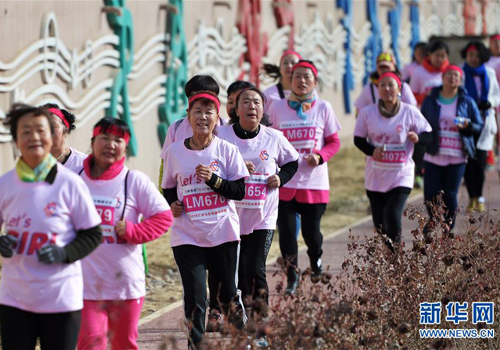Empower women for betterment of economy
By Virginia Tan (China Daily) Updated: 2016-03-12 09:49
 |
|
Thousands of women participate in a walking race in Lanzhou Marathon Park in the city of Lanzhou, Gansu province on March 6 to celebrate International Women's Day. The contestants called for a low-carbon and healthy approach to the activity. [Photo/Xinhua] |
Wang Jianlin, chairman of the Dalian Wanda Group and one of China's top business leaders, has said: "When Wanda recruits locally, we give preference to English speakers and women." We see this as an encouragement for Chinese women to capitalize on the opportunities offered by the economy and to continue contributing to it.
Multinational companies have been noticing the increasing significance of women in the workplace. The past couple of years have seen the unlocking and developing of women's potential as a talent pool for the benefit of enterprises. We have found that professional and social platforms aligned with women performing well in the economy makes sense in two ways - from an employee's perspective and from the viewpoint of corporate branding.
Companies that wish to recruit, retain and develop top talent must find ways to encourage their woman employees to maximize their potential, because that would have a positive impact on the companies' performance as well. Forming and leveraging partnerships with top multinationals and Chinese enterprises appear to be a natural step toward creating more opportunities for women in our communities.
From a brand's perspective, more companies are starting to realize the growing power of Chinese woman consumers - Alibaba founder Jack Ma credited saleswomen and woman consumers as a key factor for Alibaba's success and listing in 2014. Chinese women, in general, aspire to a brighter future, have a strong desire to improve themselves, and are searching for more opportunities to broaden their horizon, including international platforms.
A survey conducted by Lean In Beijing in 2013 showed that many Chinese women lacked self-confidence, couldn't find enough approachable role models, and were not good at establishing networks and meaningful connections beyond their usual social circles.
Based on the survey's results, we also feel that professional success is intrinsically linked to personal development. Women who want to become leaders have to first step up and embrace responsibilities. Second, they should realize one does not become a leader overnight. To become a leader, one has to invest time and resources, and make efforts to learn and develop crucial soft skills such as networking, management, negotiation, public speaking and communication. So we need a professional networking platform that would focus on providing soft-skills training to woman professionals and college graduates.
Virginia Tan is co-founder of Lean In China, the Lean In platform for China - the global campaign for professional women building self-help circles.

I’ve lived in China for quite a considerable time including my graduate school years, travelled and worked in a few cities and still choose my destination taking into consideration the density of smog or PM2.5 particulate matter in the region.











